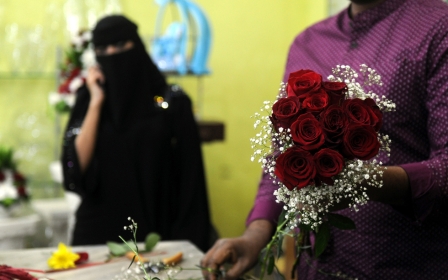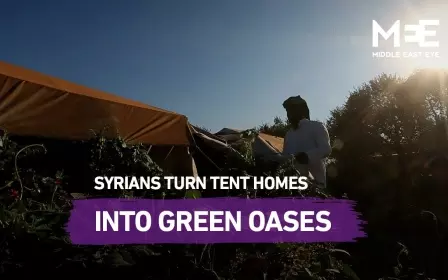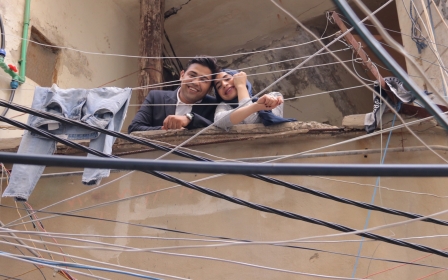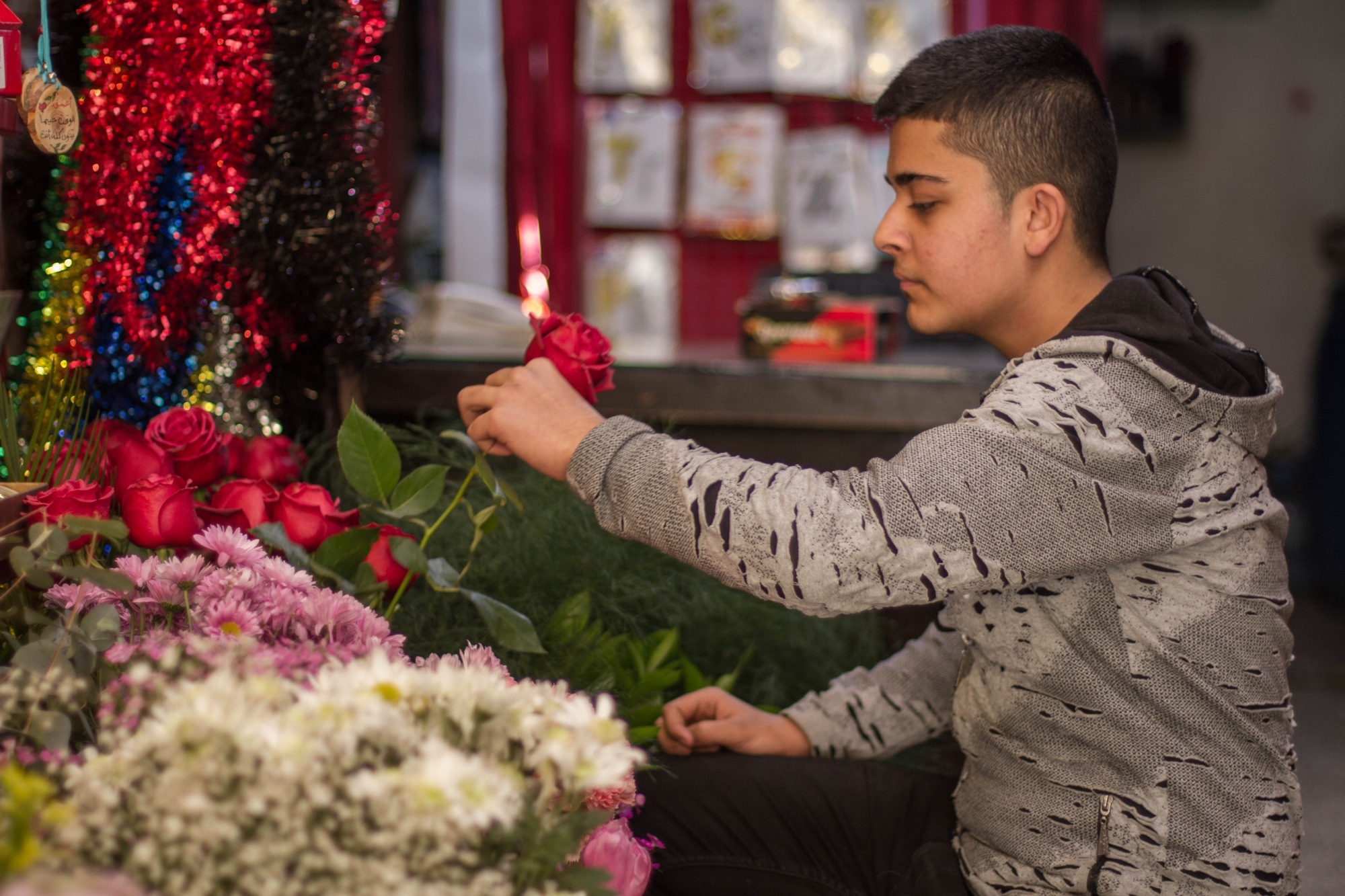
All you need is love: Syrians celebrate Valentine's Day in war-torn Idlib

In Idlib's Clock Square, where many Syrians do their shopping in the rebel-held city, shops have taken on a more festive feel in recent days.
Flowers, teddy bears, jewellery and heart-shaped objects of every size crowd shelves, as some residents celebrate Valentine's Day on Sunday.
While the holiday is not widely observed in Syria, shopkeepers tell Middle East Eye that young Syrians in particular have adopted the occasion in recent years as a respite from the hardships of war. (MEE/Moawiya Atrash)
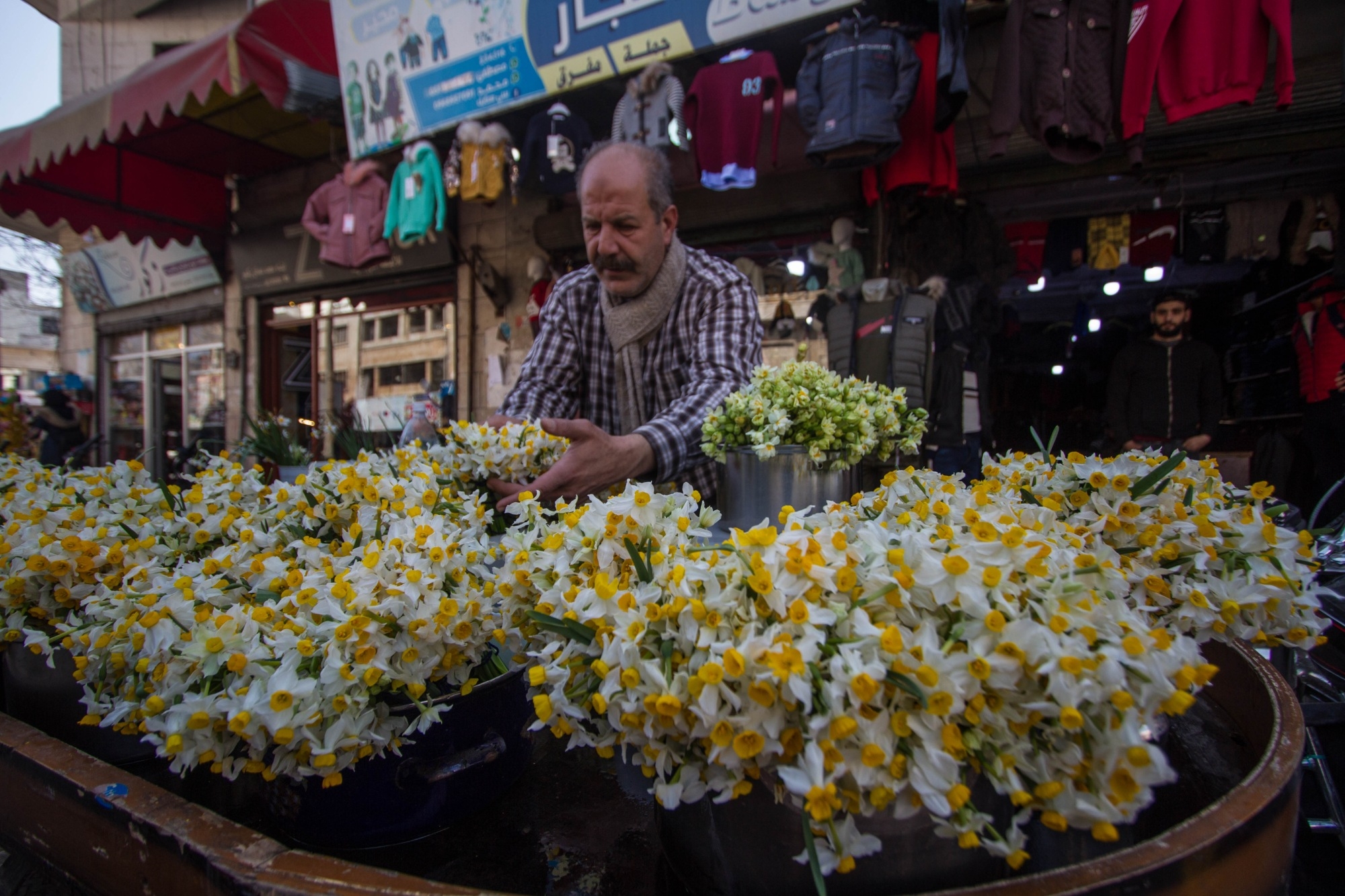
Ahmed Aswad, 56, sells daffodils near Clock Square. He attracts passers-by to his cart of flowers with kind words. Aswad says his work brings him a lot of joy.
"Working with flowers is a beautiful thing. I have loved it for a long time," he tells MEE. "Flowers give psychological comfort. They smell very good." (MEE/Moawiya Atrash)
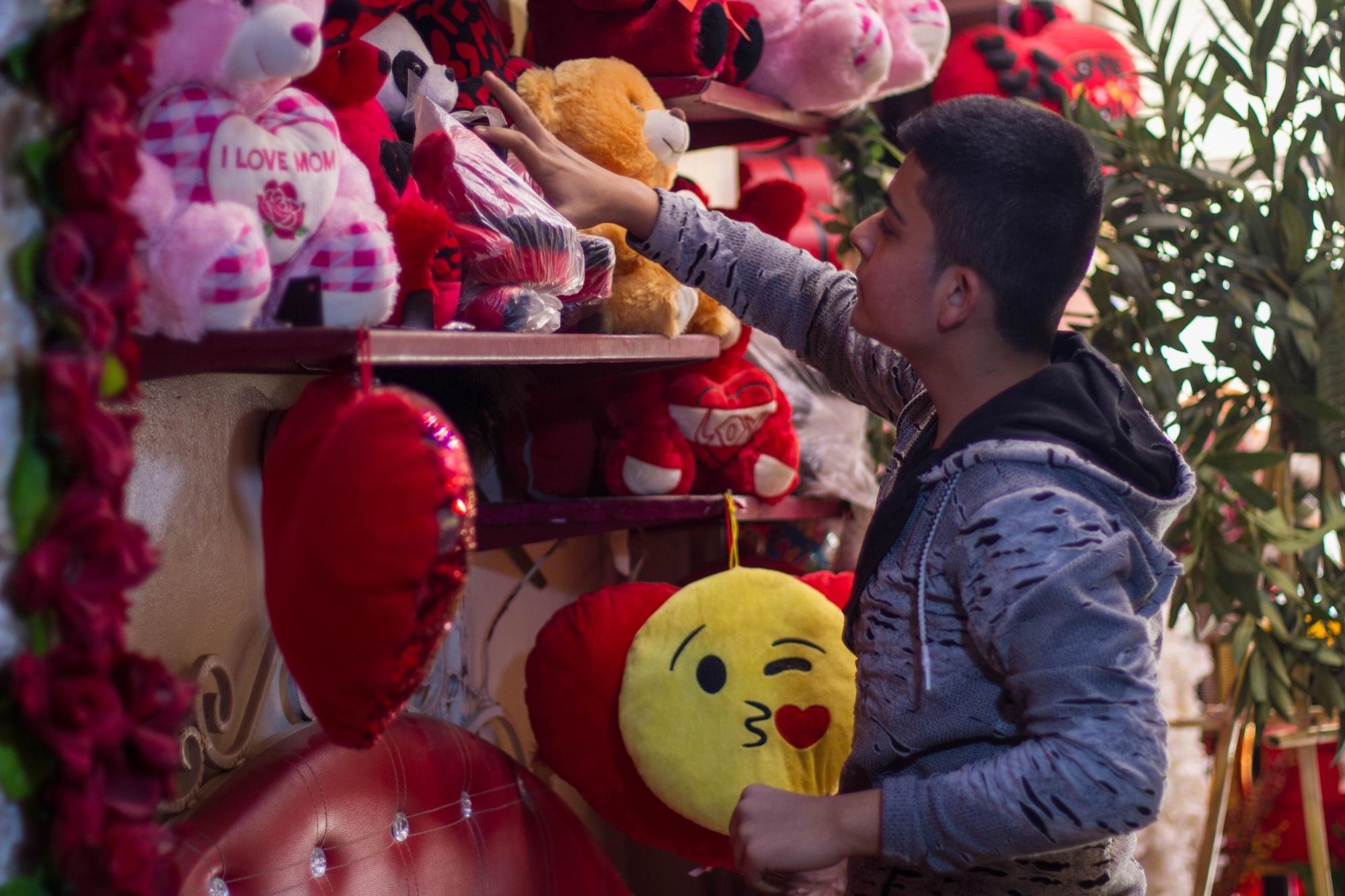
Tariq Qusra, a 16-year-old who works in a gift shop, says holidays like Valentine's Day are the best times of the year for business.
"We prepare well before every occasion, such as Mother's Day, New Year, Valentine's Day and others," he says. "Customers come more at those times because young people want to celebrate these occasions and buy roses and gifts."
Despite a rise in demand around those times, unemployment and poverty in Idlib still mean few people are able to afford gifts. (MEE/Moawiya Atrash)
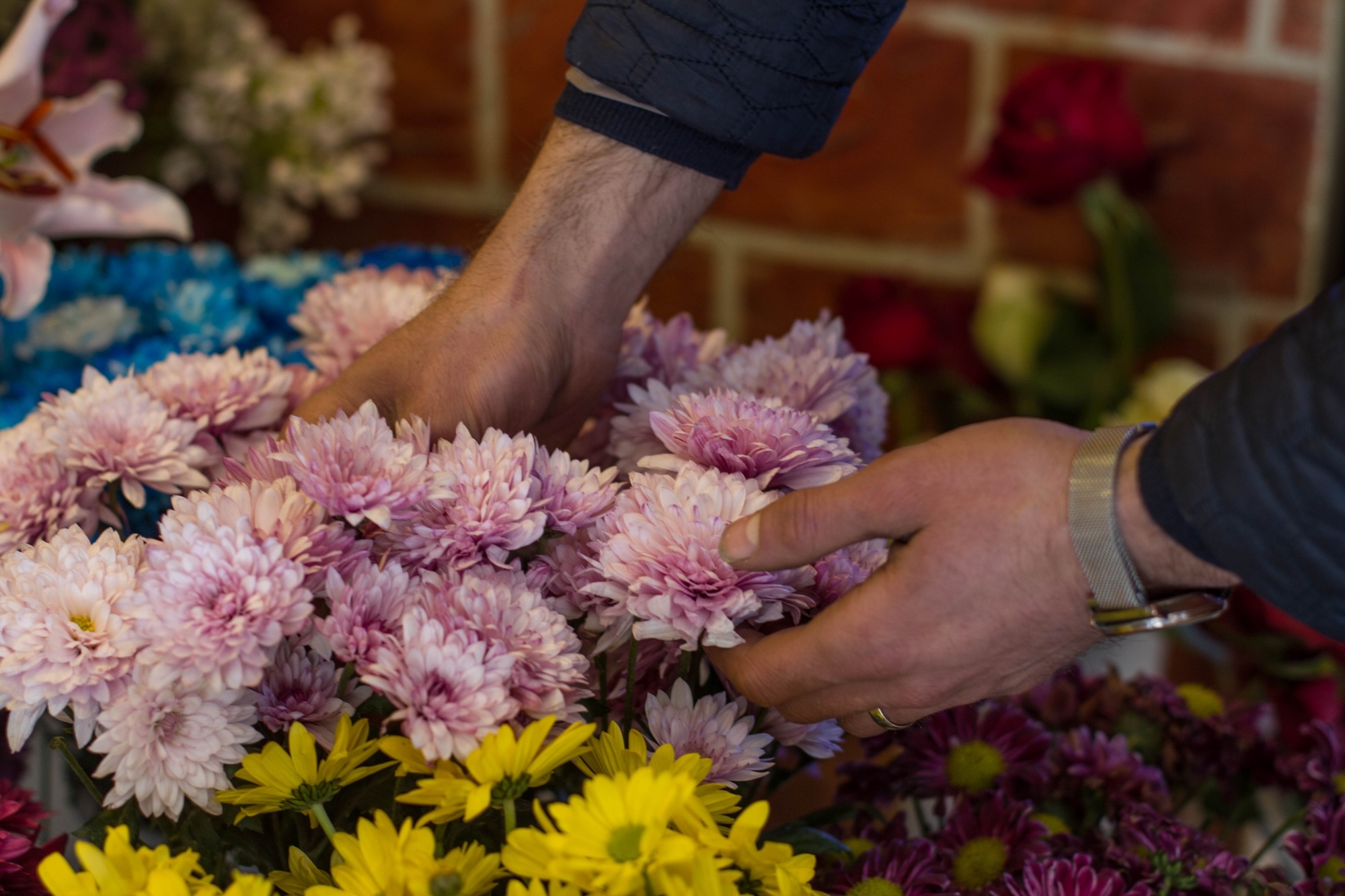
Gift-shop owner Anas Abu Mohammad, 30, says he has higher hopes for this year. In early 2020, an offensive by forces backing Syrian President Bashar al-Assad in Idlib killed and displaced many in the last rebel-held region of the country.
"Last year around Valentine's Day, bombings were intense, and many civilians were displaced due to the Syrian regime's military campaign and [by] his allies, and we could not sell much in such circumstances," he says.
Since a ceasefire brokered by Russia and Turkey came into effect in March, Abu Mohammad says, life has slowly returned to something resembling normalcy within the broader context of the conflict, allowing people to think about things beyond life-or-death considerations. (MEE/Moawiya Atrash)
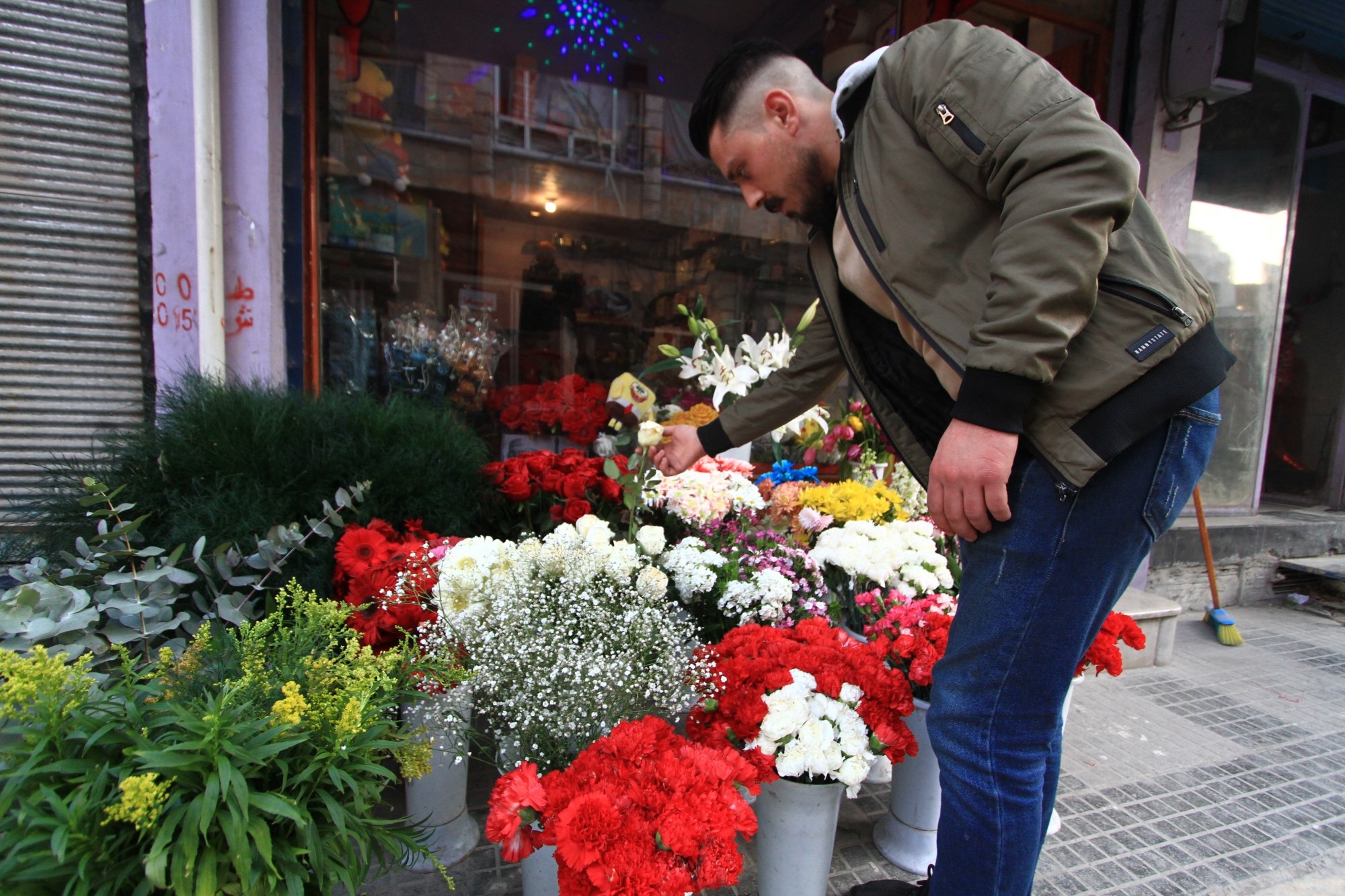
As he looks at flowers to give to a loved one, Haitham al-Khalif says Valentine’s Day is a welcome distraction in Idlib.
"We wait for events, whatever they are, in order to entertain ourselves a little and take a break from thinking about the war and concerns for the future," he says. "We have suffered a lot over the years, and we look for any occasion to entertain ourselves."
Khalif says "western" celebrations like Valentine's Day are not culturally embedded in Syria.
"We do not celebrate Valentine's Day or New Year to commemorate them, but rather just to feel that we have a day out of the ordinary, to enjoy some change from our daily routine." (MEE/Moawiya Atrash)
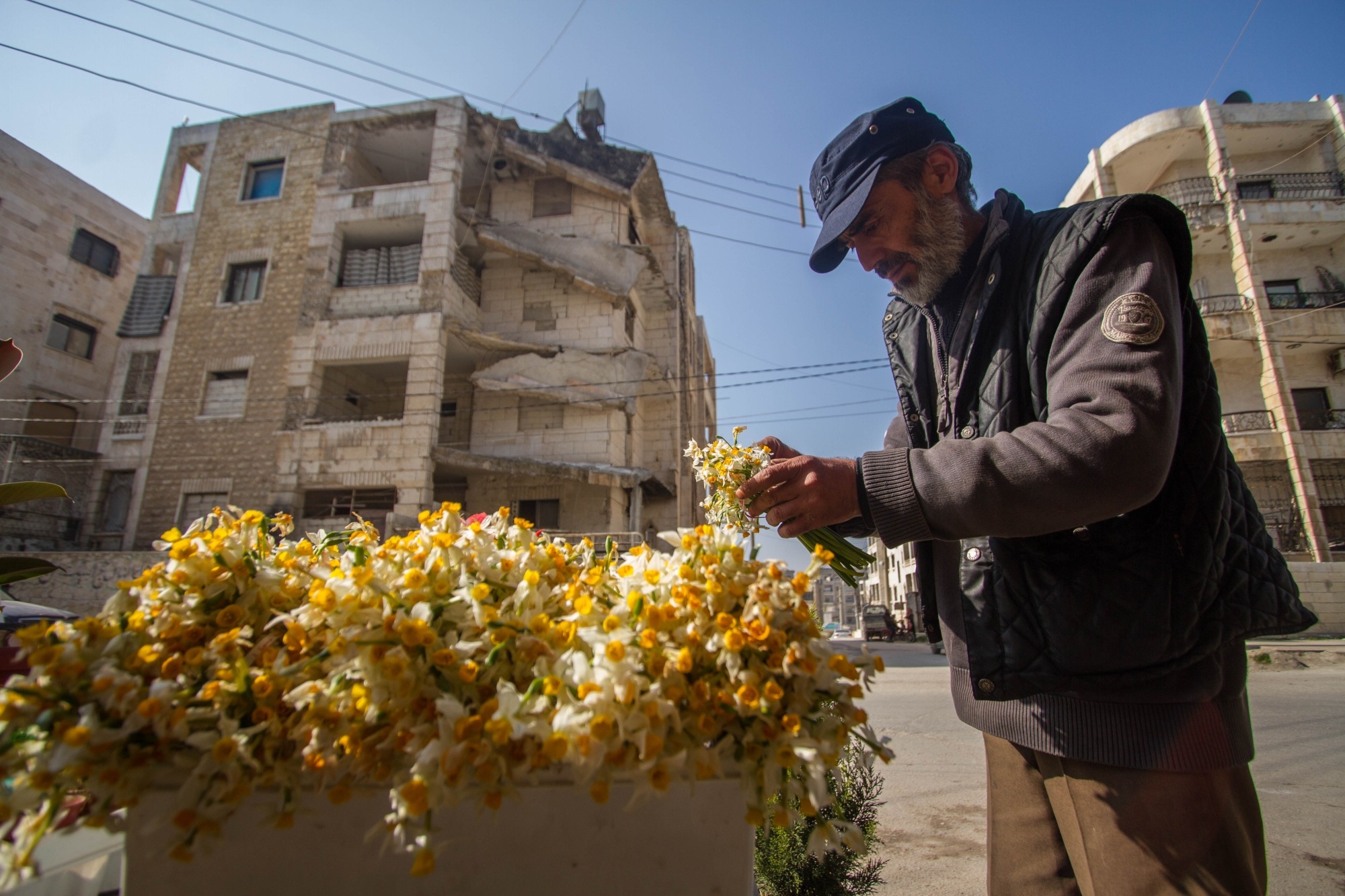
Hussein Abu Ras, 52, sells flowers in an area where buildings were damaged by air strikes because his spot is close to the University of Idlib, where young people are more likely to want to buy flowers for their love interests.
He fled the northwestern city of Aleppo several years ago because of the conflict, but says he has kept his love of plants in spite of displacement.
"I used to grow flowers in my garden in the home I had to abandon in Aleppo," he says.
Like others, he expresses ambivalence about Valentine's Day celebrations, but encourages occasions when people can express their affections - and buy his flowers.
"I do not encourage Valentine's Day from a religious point of view," he says.
"But flowers and love are fairly good, without setting aside a specific day for it."
Middle East Eye delivers independent and unrivalled coverage and analysis of the Middle East, North Africa and beyond. To learn more about republishing this content and the associated fees, please fill out this form. More about MEE can be found here.


